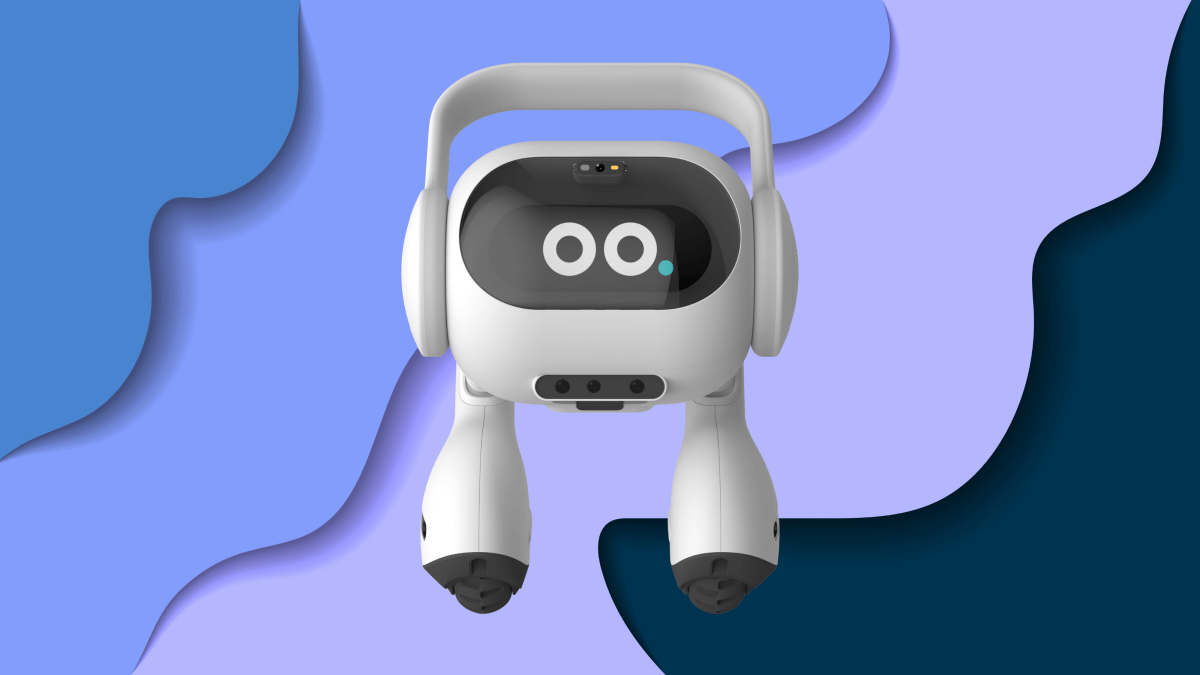CES 2024: The weirdest tech, gadgets and AI claims from Las Vegas | TechCrunch
CES 2024 is in full swing in Las Vegas. We’re on the ground giving you the most talked about news and announcements from the event, but much of the fun is to be found in the weirder margins of the show floor. In an era of CES where companies are all-in on the AI hype machine, there are bound to be gadgets and claims that are a little odd, to say the least.
Here are the eight strangest gadgets, tech and claims from CES 2024 so far.
AI-powered birding binoculars
For the birder with an unlimited budget, Swarovski unveiled the AX Visio 10×32: a $4,799 pair of AI-powered binoculars. The binoculars use AI to help you quickly identify more than 9,000 birds and other species, as well as provide the ability to take photos and videos of your discoveries to share.
An app that lets you pay to pee
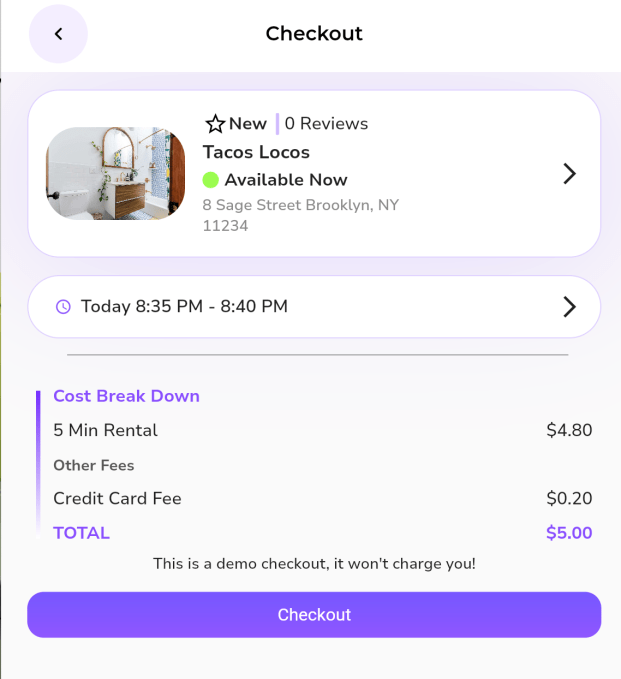
Image Credits: Flush
Need to go and willing to pay? Web-based app Flush allows businesses to rent out their bathrooms to people for additional revenue. The oddest thing about this app, outside of its existence thanks to the lack of maintained and public restrooms in the U.S., is its rating system that businesses use to approve or deny a reservation.
A BlackBerry-style keyboard for your iPhone
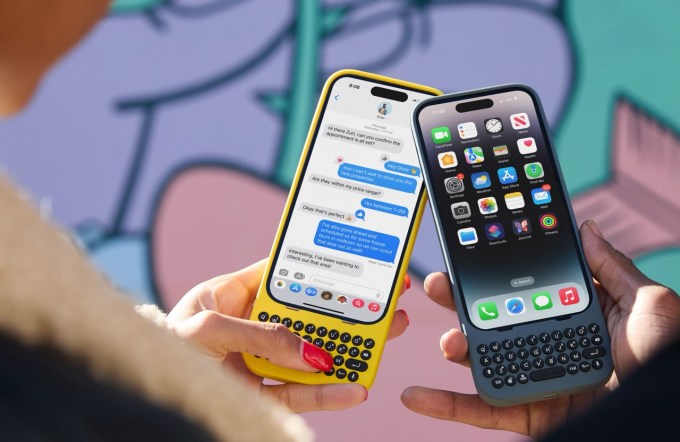
Image Credits: Clicks Technology (opens in a new window)
Do you miss the days of having a tactile keyboard on your iPhone? Revealed at CES 2024, Clicks Technology’s creator keyboard turns your phone into a BlackBerry-era relic for $139. The keyboard acts as a phone case attachment and gives you access to more of your iPhone’s screen without the digital keyboard. It’s sure to make your phone a lot longer, but maybe that’s the price you pay for nostalgia.
Dynamic sound mixing based on your driving
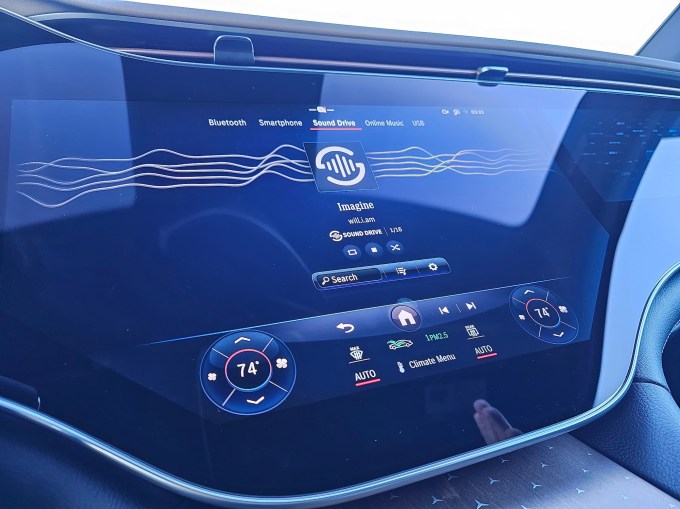
Image Credits: Tim Stevens
Sound Drive, a startup from singer-songwriter turned entrepreneur Will.i.am, aims to match the music you’re listening to with the cadence and energy of your commute. The technology reacts to your speed and matches music to it, with lyrics coming in and dropping out intelligently whether you’re ripping down the freeway or stuck in traffic. While we were a little skeptical, we came away from the tech fairly impressed.
A router that looks like a picture frame
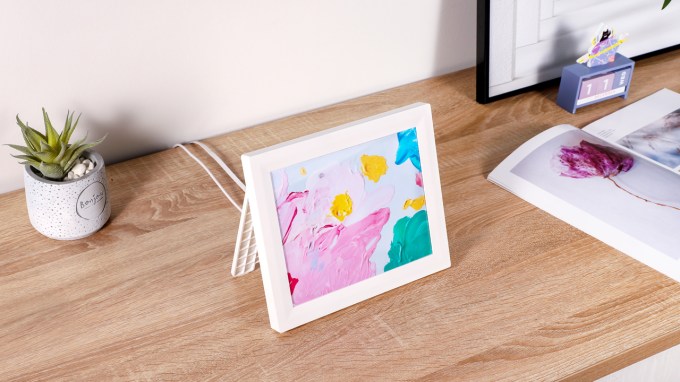
Image Credits: GL.iNet
Matching your tech to your home’s aesthetic has been trendy in the last few years. Is your TV too boring? Make it look like a gallery painting with the Samsung Frame or have it blend seamlessly into your home with LG’s newly revealed transparent television.
And the latest tech item to get the yaasification treatment is the humble router. The Marble Wi-Fi 6 OpenWrt Router from GL.iNet looks like a small framed piece of art that you can hang on your wall or prop on your desk.
An AI assistant that calls 911 for you
At LG’s press event, the company announced its Smart Home AI Agent. The “two-legged” wheeled robot acts as an assistant in sync with your LG appliances. Generative AI allows you to chat with the AI Agent, and the company claims it can show you empathy. In the company’s surreal, Pixar-esque promotional video, the bot can remind you to take your medicine or call 911 in a time of crisis.
A bidet you can talk to
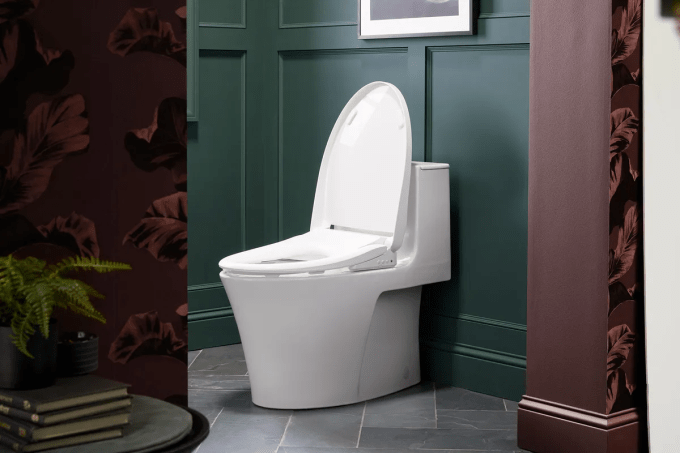
Image Credits: Kohler
Hey, Alexa? Turn on the bidet spray. Kohler introduced the PureWash E930 Bidet Seat with voice command support for Amazon Alexa and Google Assistant. With voice assistance, you can control the seat hands-free, turn on the bidet’s spray and dryer functions, as well as its self-cleaning UV feature. Just don’t let anyone watch you talking to your toilet.
A voice absorbing mask that looks like a muzzle
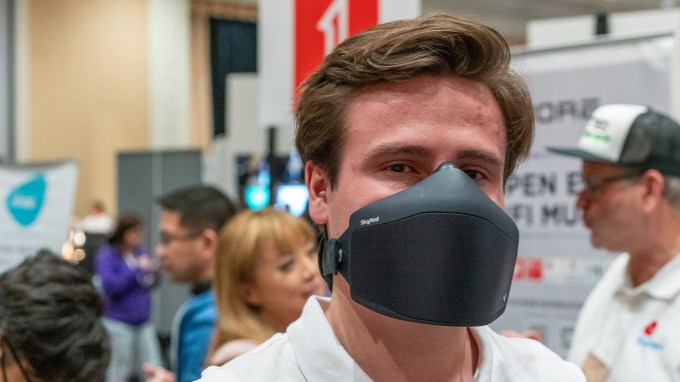
Image Credits: Haje Kamps (opens in a new window) / TechCrunch (opens in a new window)
Goodbye, nosy eavesdroppers. Skyted’s “Mobility Privacy Mask” and “Hybrid Silent Mask” are designed to “absorb voice frequencies” in noisy environments like planes, trains and rideshares, so you can communicate with a little more privacy, according to founder Stéphane Hersen. The company aims to implement their Bane-like masks in offices, call centers and even in gaming environments.
An AI-powered stroller that rocks your baby for you
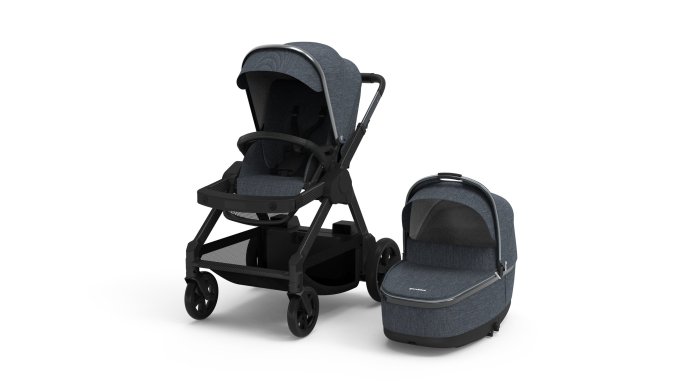
Image credits: GlüxKind
Parenting is hard. GlüxKind is hoping that’s enough to convince you to put your child in the hands — er, wheels — of its AI-powered stroller, Ella. The stroller touts the ability to push itself hands-free, stop automatically on inclines, and softly rock your child without you needing to lift a finger. The stroller also includes a built-in white noise machine feature.
An uncanny valley you can brainstorm with
One of the most notable “Who asked for this?” products unveiled at CES is the GPT edition of WeHead. The AI-powered head brings a face and a physicality to ChatGPT, rather than a purely virtual AI experience. The mannequin-like setup with multiple screens aims to act as a confidant to bounce around ideas with, though we’re more fixated on just how bizarre it looks and feels to interact with than anything.
A pocket AI assistant that scrolls through your phone for you
Want to order a pizza? Instead of pulling out your phone, unlocking it, finding a delivery app, opening it, and working your way through the UI to complete your order (so laborious!), why not just ask rabbit’s r1 to do it for you? Rather than voice-only AI assistants like Siri and Alexa, the Teenage Engineering-designed device works on a “language action model,” which allows it to hypothetically perform the requested task.
Smart molluscs that can look out for water pollution
From phones to TVs and even toilets, everything has to be “smart” nowadays. What about molluscs? Inspired. MolluSCAN CEO and co-founder Ludovic Quinault found that a simple, non-invasive sensor attached to a clam or oyster’s shell can monitor everything from feeding to reproduction and stress responses, which can be excellent predictors of water quality and potential pollution.


